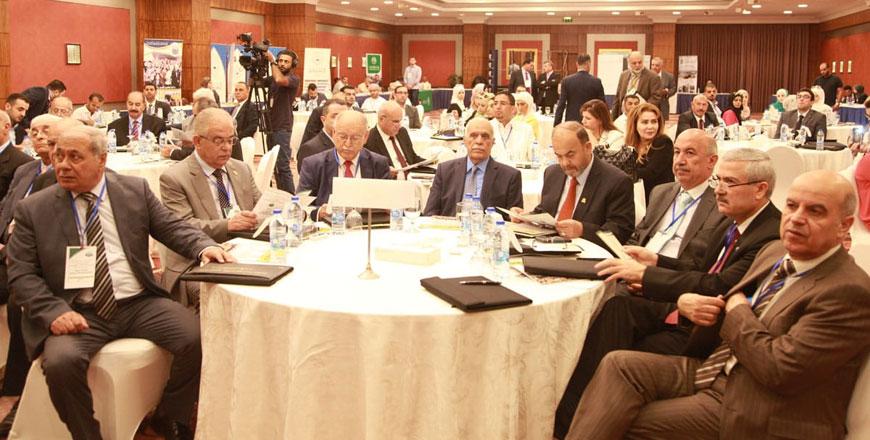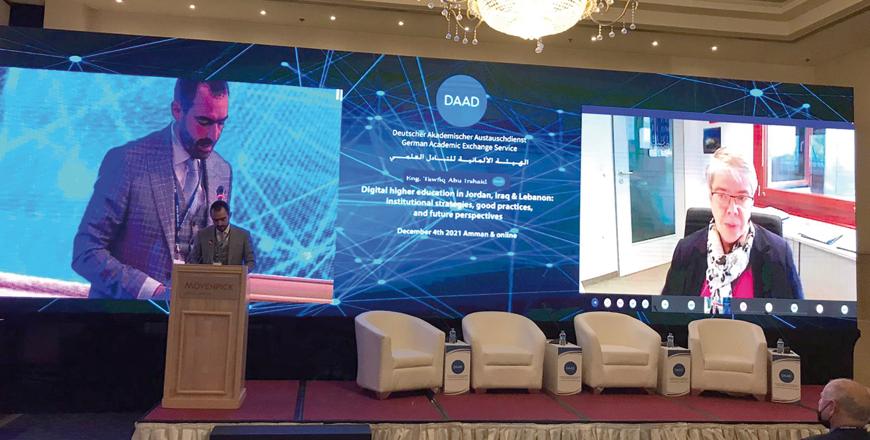You are here
Academics discuss ‘reality and challenges’ of higher education in the Arab world
By Ana V. Ibáñez Prieto - Jul 10,2018 - Last updated at Jul 10,2018

Academics participate in a conference on higher education in the Arab World on Monday in Amman (Photo courtesy of Afaq Group)
AMMAN — Hundreds of academics from across the Arab region are gathering this week at the Higher Education Conference in the Arab World, which kicked off on Monday in Amman under the theme “Reality and Challenges”.
Organised by the Jordan Academicians Society (JAS) in cooperation with the Arab Thought Forum and the Union of Arab Universities, the conference serves as a platform to discuss the challenges that the higher education sector is facing in the region, analysing issues such as funding, diversity, governance, scientific research, development and ethical behaviour.
Held under the patronage of Prince Hassan, the forum will also examine “the reality of Arab higher education with its inputs, processes and outputs”, according to organisers.
The launching ceremony was attended by former prime minister Adnan Badran, who noted that “despite the expansion witnessed by the Arab world in the number of accredited universities, no impact has been recorded on the sustainable development of countries across the region”.
Commenting on the possibility of an educational reform in the Arab world, Badran warned that “the third millennium, globalisation and the expansion of knowledge and information systems pose challenges to the higher education system in our region”, adding that “now, the universities’ outputs have their place in the knowledge market, and institutions should build a human capital that is competent enough to meet the requirements of the knowledge economy”.
In a similar vein, Secretary General of the Union of European Universities Maria Helena stressed the need to “adopt developmental educational strategies based on the economic reality of countries — especially considering the knowledge revolution that the world is currently witnessing”.
For his part, Chairman of the Board of Directors at JAS Khalid Al Omari highlighted the role of the industrial revolution and information and communication technologies (ICT) in the way the quality of the higher education sector is improved in the region, in addition to the possibility of developing a culture of virtual education in Jordanian higher education institutions.
Running through July 10, the conference includes sessions on topics such as the integration of ICT in the higher education sector, its impact on curricula and teaching methods, academic freedom in Arab universities and the role of universities in developing intellectual leaders capable of bringing change in the Arab society.
On the sidelines of the conference, an academic exhibition is being held in order to increase the exchange of scientific knowledge and provide a clear picture of the educational institutions participating in the conference, according to organisers.
Related Articles
PARIS — Wildfires and storms. Rivers at record lows. Parched crops withering in the fields.
LONDON — Frank Lampard admitted Chelsea were given a “reality check” by Bayern Munich as the Germans pushed his team to the brink of Champio
AMMAN — The absence of classroom interaction is the main downside of distance education, according to experts, who explained that access to

















